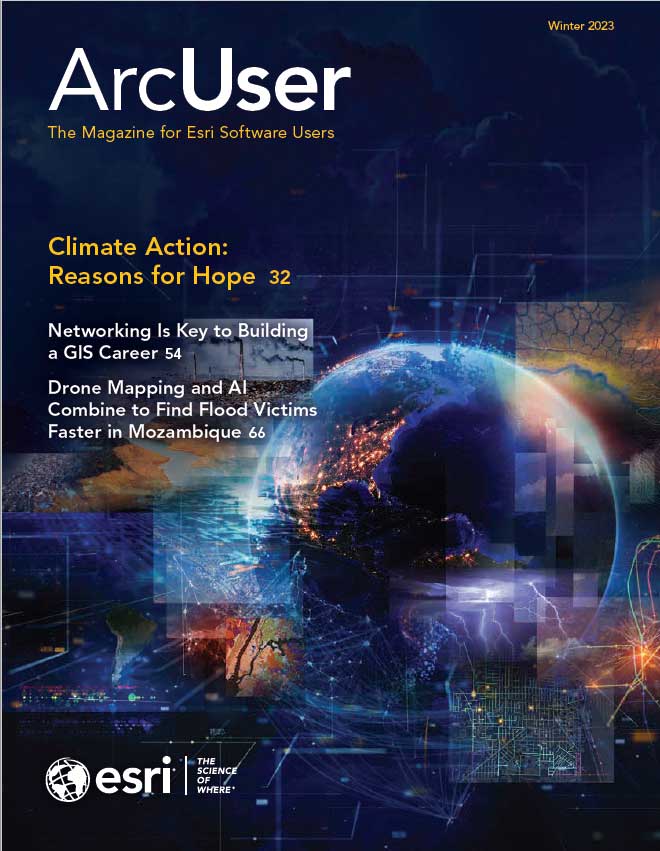At the Esri European Developer Summit in November 2022, Esri announced that client SDKs and APIs would be delivered under one name, as the ArcGIS Maps SDKs, beginning in December 2022.
This change reflects the common purpose and capabilities of these SDKs and will help bring them to a broader audience. They’re same great SDKs. They just havenew names. The current and new names are listed below.
- The Suite of ArcGIS Maps SDKs
- ArcGIS Maps SDK for JavaScript 4.25
- ArcGIS Maps SDK for .NET 200.0
- ArcGIS Maps SDK for Java 200.0
- ArcGIS Maps SDK for Qt 200.0
- ArcGIS Maps SDK for Swift 200.0 (beta)
- ArcGIS Maps SDK for Kotlin 200.0 (beta)
- ArcGIS Maps SDK for Unity 1.1
- ArcGIS Maps SDK for Unreal Engine 1.1
Note that the ArcGIS Runtime SDKs for iOS and Android are being superseded by the new ArcGIS Maps SDKs for Swift and Kotlin, respectively.
Common Capabilities
ArcGIS API for JavaScript, ArcGIS Runtime SDKs, and ArcGIS Maps SDKs for Game Engines have a great deal in common. Each is already a world-class SDK with conceptual guides, an API reference, tutorials, samples, and community forums. Each is backed by Esri Support. Combining these SDKs under one name better reflects these common underpinnings, which include:
Sophisticated APIs for easy data access, visualization, and editing
- Support for multiple data formats and services
- High-performance, powerful visualization of geospatial data
- High-precision geospatial data support at global and local scale
- Support for multiple projections and coordinate systems
- Client-side geometry engine for in-memory analysis and processing of spatial data
- Support for place search, geocoding, and routing
Seamless integration with the ArcGIS system: ArcGIS Platform, ArcGIS Online, ArcGIS Enterprise, and ArcGIS Pro
Integration with the ArcGIS system’s security model, including OAuth and API keys.
Reaching a Broader Audience
Esri, which is proud to deliver some of the best SDKs available, wants to make it as easy as possible to discover them. Whether searching the web or exploring package managers, the hard truth is that ArcGIS and Runtime often don’t mean much to a new audience. By including the word Maps in the SDK product name, Esri makes it much easier for developers to discover Esri’s SDKs when they’re searching for and evaluating location and mapping technologies for their projects.
One Suite of SDKs in Three Groups
Although the ArcGIS Maps SDKs share many capabilities, they do fall into three distinct groups, each of which is used to build specific kinds of solutions:
Web SDKs
ArcGIS Maps SDK for JavaScript is the only web SDK in the ArcGIS Maps SDK family. It is used for building apps that run in web browsers.
Native SDKs
ArcGIS Maps SDKs for Native Apps will be used as a convenient shorthand for the ArcGIS Maps SDKs for .NET, Java, Qt, Swift, and Kotlin. ArcGIS Maps SDKs for Native Apps are for building apps that run directly on mobile, desktop, and embedded devices, using .NET, Java, Qt, Swift, or Kotlin, either online or offline.
Game Engine SDKs
ArcGIS Maps SDKs for Game Engines will continue to be used as shorthand for the ArcGIS Maps SDKs for Unity and Unreal Engine. ArcGIS Maps SDKs are for building apps for augmented reality (AR), virtual reality (VR), mobile, and desktop devices using Unity or Unreal Engine that can work either online or offline.

What Will Change
This is a name change only. While you might see new names in package manager listings, documentation, or on the Esri Support site, the technology you work with won’t be changing. Furthermore, names will change only for new releases of the SDKs.
What Won’t Change
Although only the names will change, it’s worth reiterating some of the things that won’t change. Capabilities of the APIs/SDKs will remain the same. Namespaces, class names, methods, properties, and include statements will all stay the same. If you use a package manager, you’ll continue to reference the same packages. If you’re linking to ArcGIS Runtime SDK binaries, nothing will change.
In short, you won’t need to change how you reference Esri APIs or SDKs. Coding patterns aren’t changing, since the APIs aren’t changing so the way you use them won’t change either. Product support levels and product life cycles remain unchanged. Existing ArcGIS Runtime license strings will continue to be valid for ArcGIS Maps SDKs for Native Apps. Likewise, users of ArcGIS Online or ArcGIS Enterprise who have ArcGIS Runtime capabilities assigned to them will be able to use apps built with ArcGIS.
The 100.15 release of all ArcGIS Runtime SDKs will remain in General Availability status until August 2024 and won’t retire until September 2027. Release frequency will remain unchanged.
Note that if you are migrating your projects to the new Swift and Kotlin SDKs, that migration will involve code changes. See the blog post “ArcGIS Runtime in 2022 and Beyond” for more details on these SDKs.
ArcGIS Maps SDKs for Native Apps
How does this affect versions of the APIs and SDKs that have already been released?
This is a forward-looking name change. Existing releases will not adopt the name change.
When Will These Changes Happen?
The ArcGIS Developers website was updated in December 2022 with the release of new versions of the ArcGIS Maps SDKs for Native Apps and ArcGIS Maps SDKs for Game Engines. The Esri Support, Esri Community, and other web pages; products; dashboards; and documentation will be updated to reflect the new name throughout 2023. As Esri rolls out the name changes, just continue building and deploying amazing apps.







